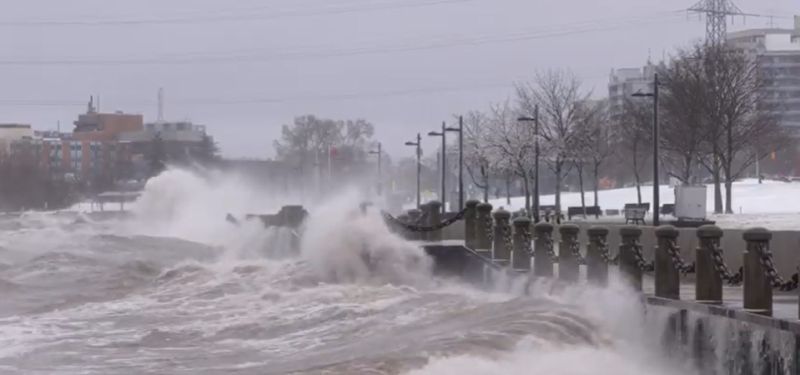Dear Friends, Followers, and Supporters,
We are sad to tell you that the ECFAS project has now ended. The project reached a conclusion on 31 December 2022.
Thank you so much for being on this exciting journey with us as we developed a proof-of-concept coastal flood awareness system. We are very happy with the outcome and strongly hope that such a system will become operational before too long. We have heard from you through our workshop, webinars and questionnaires, we have met you through online and in-person meetings and at conference and events, and we know how important an operational coastal risk management and early-warning system is to our end users.
ECFAS launched in January 2020 with the objectives of
- contributing to the evolution of the Copernicus Emergency Management Service by demonstrating the technical and operational feasibility of a European Coastal Flood Awareness System;
- providing a proof-of-concept (PoC) that would complement and broaden the currently available panoply of core service information;
- contributing to a fully integrated risk cycle monitoring service, through the implementation of an awareness system specifically targeted to coastal areas (preparedness phase) and impact
assessment (response phase) in the aftermath of a flood event, playing a fundamental role for the implementation of effective recovery and prevention actions.
Technically, the ECFAS system comprises of two components: the Early Warning System, and the Mapping Component. Both of these are based on cutting edge technology and the best available data. The Early Warning System, based on Copernicus Marine Service data, is capable of predicting storm-triggering water levels up to three days in advance. ECFAS’ Mapping Component was based on complex modelling using ECFAS’ database of extreme events and test cases., which provided a catalogue of flood maps for most of the European coast. Leveraging satellite imagery, ECFAS has produced a novel tool for shoreline analysis and extraction (SAET) as well as Rapid Mapping and Risk and Recovery Mapping capabilities. All of the ECFAS echnical developments, which are all thoroughly described in our Public Deliverables and publications.
In developing this ECAFAS proof-of-concept system, we have made great efforts to meeting with our End Users through our first online Webinar in May 2021 and a second webinar in April 2022. In 2022 we launched a co-evaluation phase, during which End Users provided feedback on the interface and functionality of our ECFAS platform, which will be released for public adjudication once it has been approved by the EC.* We finished this phase with a Workshop for End Users during which we showcased our PoC and its functionalities.
So as the ECFAS project arrives at an end we leave you resources to learn for yourselves about ECFAS, its platform and the tools it contains. You can find materials for independent learning in our suite of E-Learning Modules that cover all aspects of the ECFAS system. For each theme, you can take a lecture, top up your new knowledge with some extra reading material, and then test your knowledge via an interactive quiz.
Last, but not least, we leave you our vision for integration of our proof of concept system into the existing Copernicus suite of services. You can find this full vision outlined in the ECFAS Roadmap.
We hope you have enjoyed your journey with us. Please keep in touch and send us any questions or recommendations via ecfas.project@gmail.com.
*Please note that at present, the ECFAS platform is a proof-of-concept and not an operational tool nor an operational Copernicus service. ECFAS partners provide the data “as is” and “as available” without warranty of any kind. The ECFAS partners shall not be held liable resulting from the use of the information and data provided in the platform.
